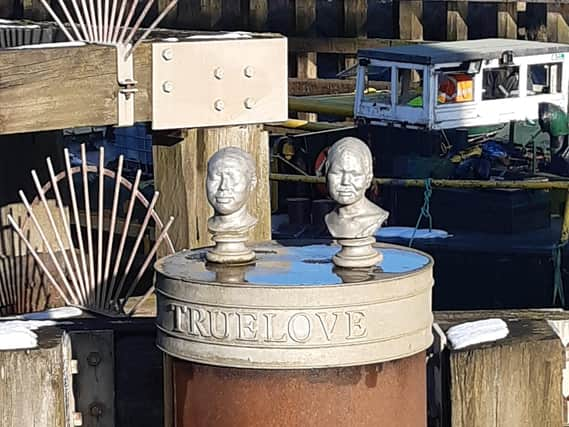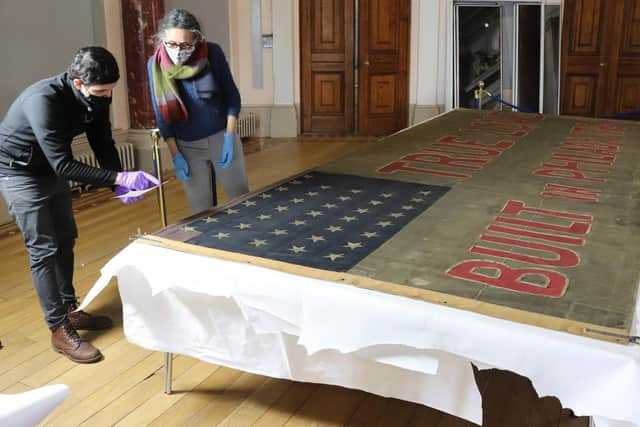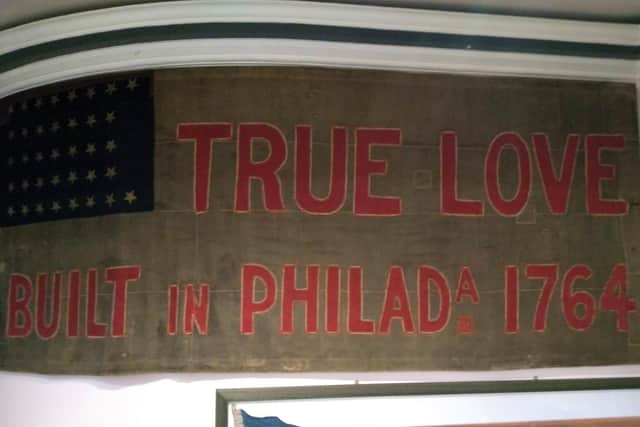The extraordinary tale of the Inuit couple who came to Hull on the last of the city's whalers


When she was finally broken up on the Thames she had clocked up 130 years of service.
But she is probably best known for the poignant tale of two young Inuit - Memiadluk, 17, and his 15-year-old wife Uckaluk - who were brought back to Hull in a bid to raise money for their community - but Uckaluk tragically died. A bust commemorates them in the city to this day.
Advertisement
Hide AdAdvertisement
Hide AdNow her flag, which has hung for years in Hull's Maritime Museum for years, is being conserved as part of Yorkshire's Maritime City project.


Truelove's life began in in Philadelphia in 1764. She operated as an American privateer during the War of Independence and was captured by the British, before being strengthened for her new role as a whaler.
"The build of the ship was unusual, with her top sloping inwards, it was said when the pressure of the ice came on it forced the ship up out of the ice, preventing her from being crushed," said maritime historian Dr Robb Robinson.
In 1835 the Truelove was one of a fleet trapped in ice in Melville Bay, Greenland. Twenty of the fleet were crushed but Truelove survived unharmed. It was remarked that she was "safe as a lifeboat, and tight as a bottle".
Advertisement
Hide AdAdvertisement
Hide AdCaptain John Parker was her master for 16 years and was considered a strong disciplinarian and outstanding seaman.


He was shocked by the condition of the Inuit who he encountered on Baffin Island and the starvation they faced.
"They lived incredibly close to subsistence levels but because of their encounters with Europeans they suffered the consequences.
"They didn't have any immunity to the diseases they encountered. Yet they were much more successful at surviving in that climate than many Western explorers who got stranded there," said Dr Robinson. "There were numerous accounts of them helping whalers who got in trouble."
Advertisement
Hide AdAdvertisement
Hide AdIn 1847 Captain Parker decided to bring the young Inuit couple back to Hull from the Davis Straits to publicise their plight and try and raise funds.
Memiadluk and Uckaluk were exhibited at talks in the city as well as York and in Manchester during the winter and "their appearance, manners and clothes aroused great interest".
Uckaluk was very attached to Captain Parker - to whom she reportedly said: "Uckaluk no father, no mother; Captain Parker be her father, doctor (the ship's surgeon Mr Gedney) be her mother."
But when the Truelove sailed again for Cumberland South, Uckaluk died in a measles outbreak on board.
Advertisement
Hide AdAdvertisement
Hide AdA bust commemorates them close to the tidal barrier in Hull to this day.
Truelove made her last whaling voyage in 1868 when she and the Diana were the only whalers left sailing out of Hull.
The flag, which measures 15ft wide, was presented to Captain Thomas Weatherill when the Truelove’s crew made a stir by sailing back to Philadelphia in 1873.
It has 37 stars - one for each American state admitted to the Union at the time.
Advertisement
Hide AdAdvertisement
Hide AdIt is now 40 years since the flag was last conserved, and it needs thorough yet delicate cleaning and repairs, before going on display again in the museum, which is currently closed for an £11m upgrade.
Comment Guidelines
National World encourages reader discussion on our stories. User feedback, insights and back-and-forth exchanges add a rich layer of context to reporting. Please review our Community Guidelines before commenting.